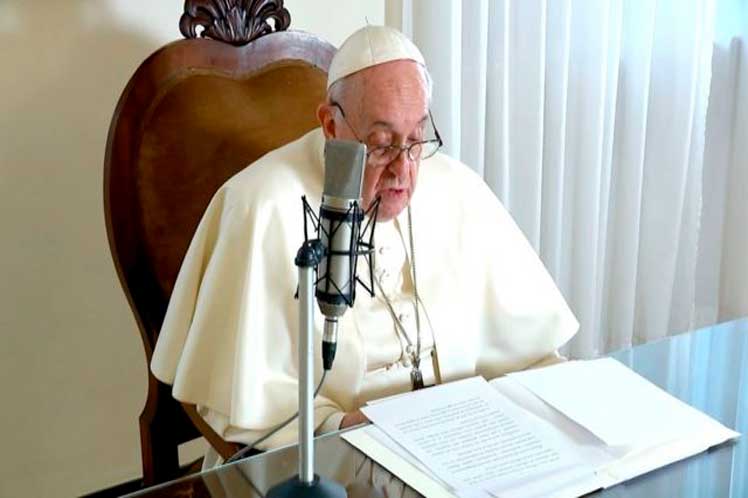In a message broadcast on BBC Radio, the Pope said that both phenomena also raise ‘numerous doubts and questions about our economic systems and about the ways in which our societies are organized.
Our securities have collapsed, our appetite for power and our desire for control are crumbling, Francis said, noting that we have discovered ourselves weak and full of fears, immersed in a series of ‘crises’: health, environmental, food, economic, social, humanitarian, ethical.
Transversal crises, strongly interconnected and a harbinger of a ‘perfect storm,’ capable of breaking the ‘bonds’ that unite our society within the precious gift of Creation, he said.
These crises, he said, confront us with radical choices that are not easy to make and added that ‘every moment of difficulty also contains opportunities that cannot be missed’.
In the Pope’s opinion, this path can only be followed ‘through a renewed global co-responsibility, a new solidarity based on justice, on the sharing of a common destiny and on the awareness of the unity of the human family, God’s plan for the world.
Referring to the 26th Conference of the Parties to the UN Framework Convention on Climate Change, which will be held in the coming days in Glasgow, Francis said that the ‘political leaders’ who will participate in it are urgently called to offer effective responses to the current ecological crisis.
pgh/etc/mem/fgg









